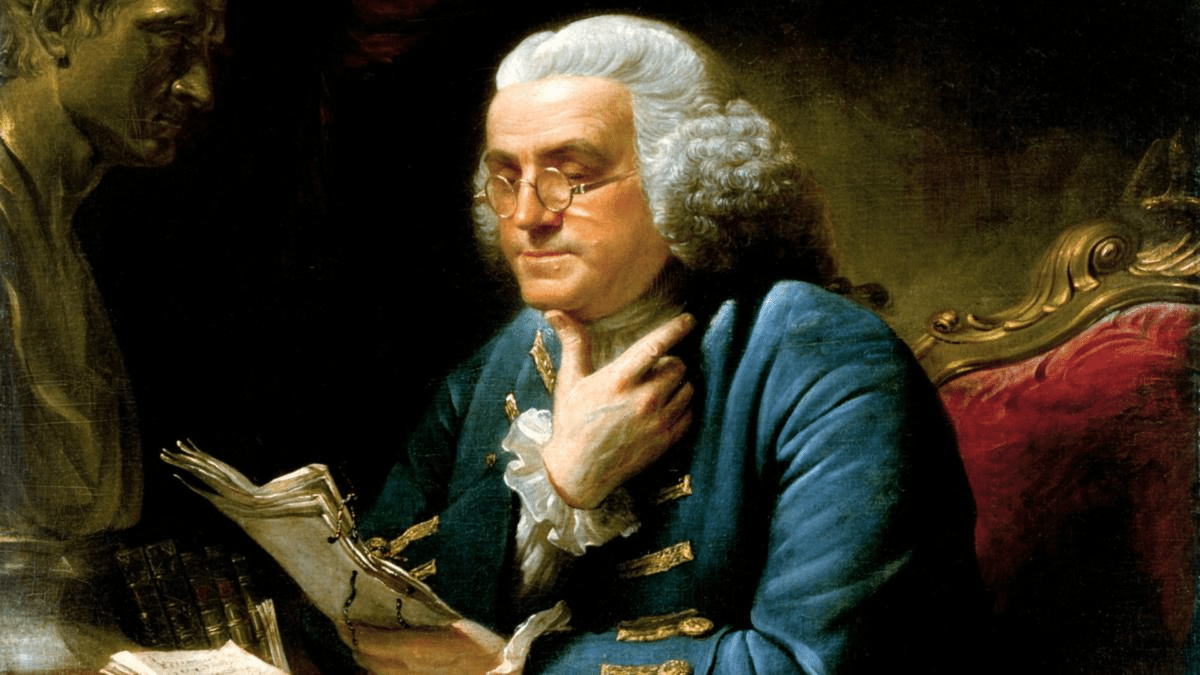John Locke spoke of unalienable rights... the right to _______, liberty, and property/pursuit of happiness.
Life
The ________ of 1763 said the colonists could not settle land previously owned by France, because the British thought they would create conflict with Native tribes in the area.
Proclamation
This event saw the colonists dress as Native Americans and dump tea into Boston Harbor.
Boston Tea Party
Lexington and Concord
The General of the Continental Army (colonies)
General George Washington
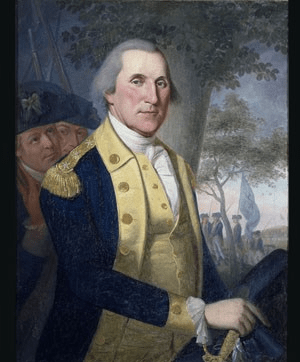
What idea of Montesquieu's would manifest into our system of three-branch government?
Separation of powers
This act taxed sugar, molasses and imported non-British goods. This would inspire the practice of smuggling.
Sugar Act
After a protest turned violent, five colonists were killed, including a Black man named Crispus Attucks. This event was used as a propaganda tool to spread revolutionary thought.
The Boston Massacre
An American victory, called the turning point in the war due to it convincing the French to join the fight with the colonists.
The Battle of Saratoga
This man wrote a pamphlet called Common Sense in which he wrote that it is common sense for the colonies to seek independence.
Thomas Paine
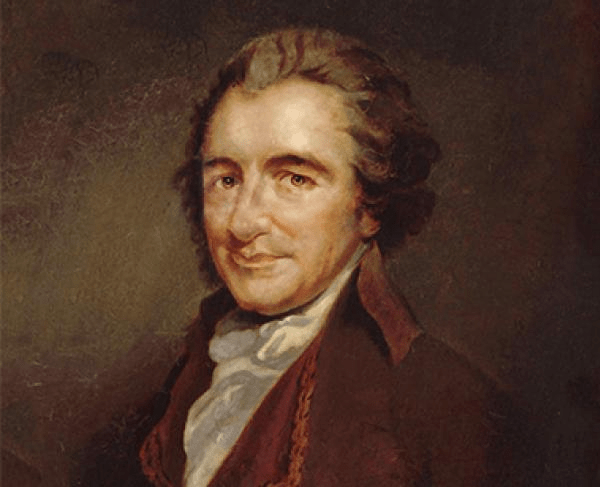
Voltaire believed in the separation of _________ and ___________, which Thomas Jefferson agreed with.
church and state.
This series of acts was meant to remind the colonists who is in charge and assert authority over them, in addition to taxing tea.
Townshend Acts
Colonists would refuse to buy British goods, and instead make their own or smuggle them into the colonies.
Boycott
The final major battle of the Revolution, in which General Cornwallis' army was surrounded and forced to surrender.
The Battle of Yorktown.
The author of the Declaration of Independence, who initially declined the offer to write it.
Thomas Jefferson
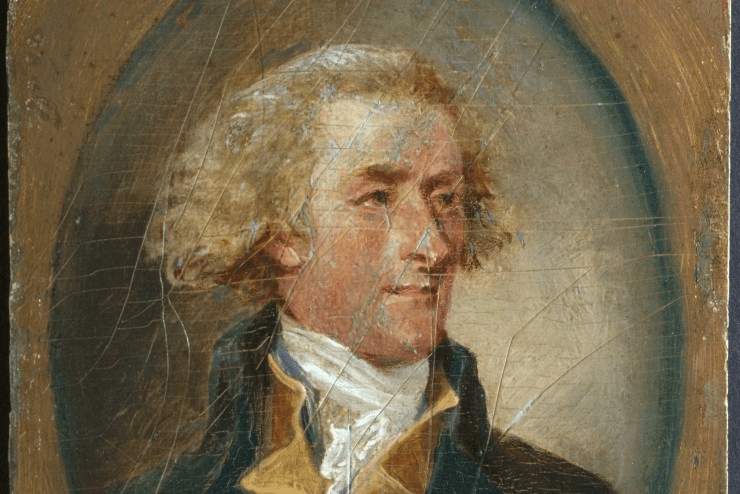
This man is called the "father of capitalism," and believed in laissez-faire economics, which means the government leaves the economy alone.
Adam Smith
The Treaty of _________ in 1783 signaled the official end of the Revolution, as Britain recognized the colonies as independent states.
Paris
A secret society responsible for the Boston Tea Party. Notable members include Paul Revere, Samuel Adams, and John Hancock.
Sons of Liberty
This battle was a British victory, but they sustained great losses; over 1,000 British soldiers and officers died in 2 hours.
The general of the British army toward the end of the Revolutionary War
General Cornwallis
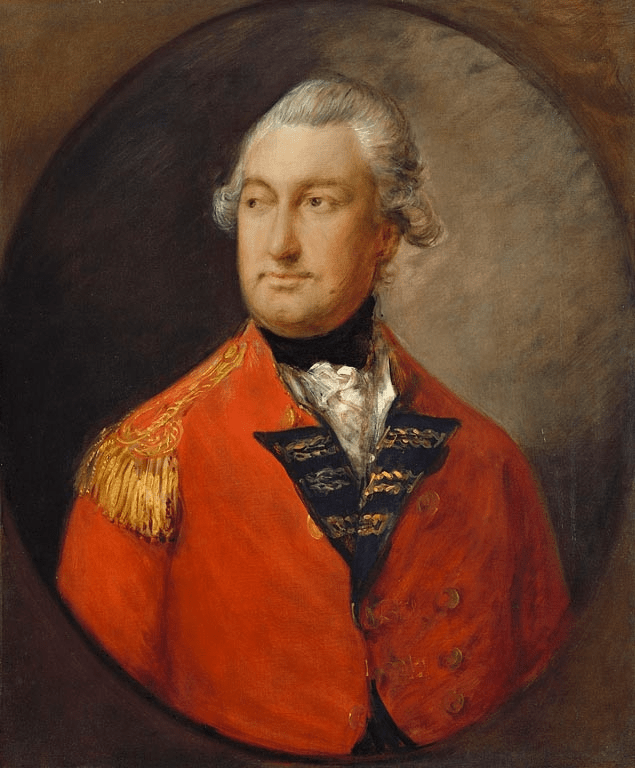
The Enlightenment was...
...a time of philosophical reasoning and awareness of the relationship between the mind and the physical world.
The Treaty of _________ saw the French agreeing to join the colonies in their fight for independence.
Alliance
James Otis' rallying cry against taxes was this.
No Taxation Without Representation!
These two victories reinspired General Washington's men to continue fighting, and even inspired some to join the Continental Army for the first time.
Battles of Trenton and Princeton
What diplomatic, scientific man created this political cartoon?
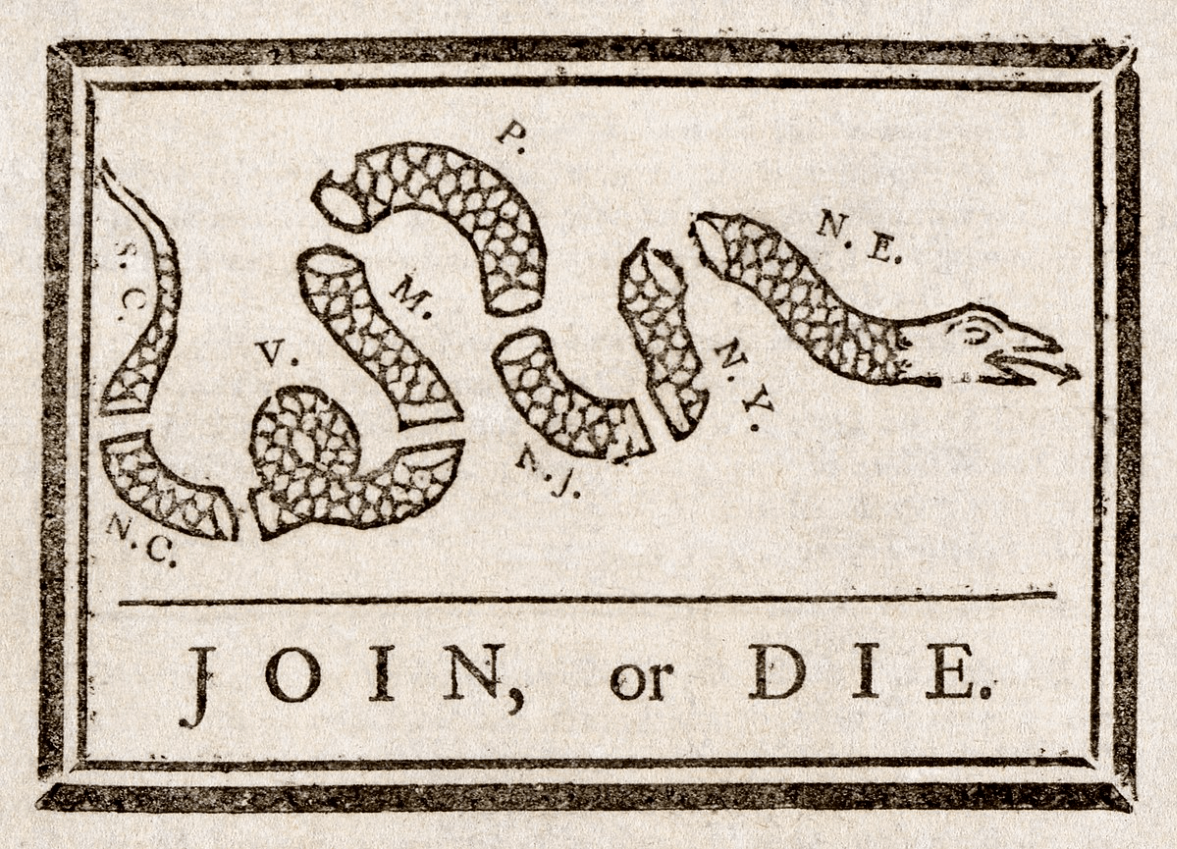
Benjamin Franklin
